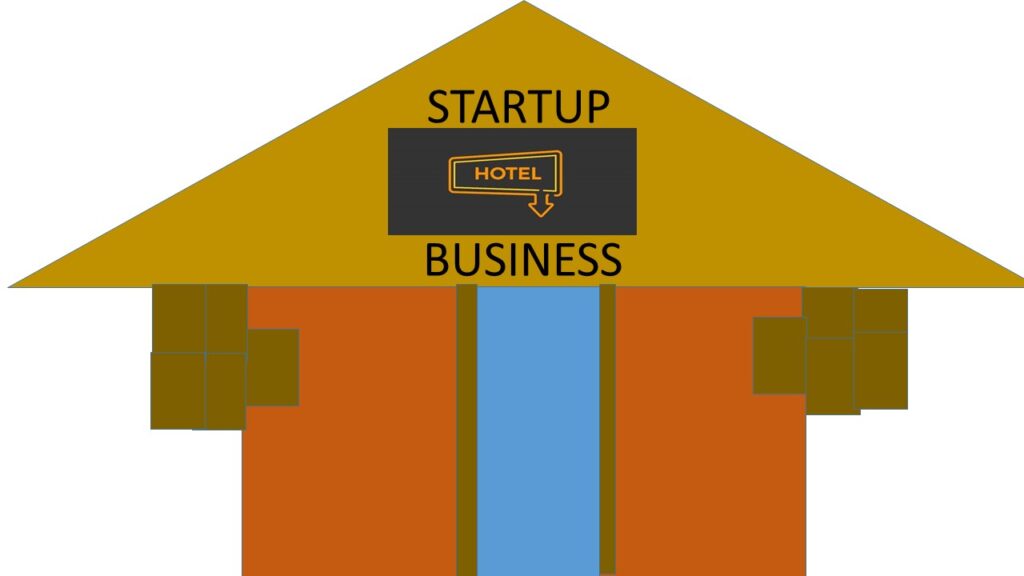How Frauds and Abuses Are Committed In Hotel Businesses
Fraud schemes in hotel businesses can happen both in the front office and back-office centers. Some of the frauds have immediate direct impact on the hotel revenue and profit margin while some others do not but can cause damages to the reputation and brand image. of the hotels which can cause loss of loyal and potential customers and litigations from aggrieved parties.
Presented below are some of the fraud schemes common in hotel businesses:
(1) Front office fraud schemes
- (1a.1) committed by customer service staff with direct impact on the company revenues and profitability margin.
- (1a.2) Kitchen and Restaurant Sales Fraud Schemes
- (1a.3) Hotel Bar fraud and abuse
- 1a.4) Fraud and Abuse Schemes Committed by Guests
- (1a.5) Cyber Security Fraud Schemes/Unethical Hacking Scheme
- (1a.6) Frauds and Abuses Committed by Hotel Employees on Guests
(2) Back Office Fraud Schemes
- (2a.1) Inventory fraud schemes
- (2a.2) Finance and Accounts fraud schemes
- (2a.3) Petty Cash fraud schemes
- (2a.4) Physical Asset Fraud Schemes -Company Pool Cars, Telephones, etc. Fraud Schemes..
The front office fraud schemes are mostly committed by the sales or customer service personnel, bar and restaurant attendants, guests and cyber security unethical hackers. The back-office fraud schemes are committed primarily by the back of staff such as the administrative staff including chefs, storekeepers, janitors, finance and account staff, vendors and others. Presented below are the high-level descriptions of how each fraud scheme is committed.
(1 Front Office Fraud Schemes
(1a) Fraud Schemes Committed By Customer Service Staff
Some of the major fraud schemes that the customer service employees of a hotel business can committee againt the hotel accounts are Sales skimming, lapping/teeming and lading, charge backs, cash larceny, false disbursements, business diversion, bogus booking, false commission earning and customer loyalty claims. These fraud schemes have immediate direct impact on the hotel revenue and profit margin.
(1a) Sales Skimming Fraud Scheme refers to instances where guests are checked in and payments are collected but the record of the guest transactions are not recorded in the Booking and Payment System while the cash payments collected are kept for personal use by the front officer staff. This scheme can happen in a number of ways: which include
- guests being coerced by the customer service to make cash payments or online transfers to private bank accounts with the excuse that the company’s POS is not functional due to network issues or that the company’s bank account detail for transfer is not available. Where the bank account details are available, the guest will be told that that check in will be delayed until confirmation of payment on the company’s bank account detail is confirmed by the superior who are not currently available.
- customer service staff may bring their own POS device to receive guest payments to private accounts.
(1a.1) Charge Back Fraud Scheme refers to where guests have checked into the hotel, enjoyed services and have made the required payments to the hotel accounts but the customer service have falsely cancelled the guest transactors in the hotel check in and payment system and then supply false bank account details to return the refunds.
(1a.2) Cash Larceny refers guest check-in details and payments are properly recorded in the hotel Check-in and Payment system and then some of the cash collected are taken away by the front of staff without altering the payment receipt register..
(1a.3) False Disbursements refers to where all guest check in accounts and payments are recorded correctly in the hotel Check-in and Payment System, but the customer service staff have taken some of the cash collected and then records the cash taken as valid disbursements to procure items for the hotel use,
(1a.4) Lapping/Teeming and lading fraud scheme happens in two ways as follows:
- Delayed Banking — this happens when guest check-in and payments are collected and recorded in the hotel Check in and payment system, but the cash collected are not lodged in the hotel bank account same day but delayed and diverted for personal use, The cash payments collected for subsequent day collections are then lodged in the hotel bank account to cover the previous day collections.
- Delayed Accounting and Recording – This happens when guest check in and payment details for the current day transactions are not recorded in the hotel system and the cash collected are diverted for personal use. The guest check in and payment details for the previous day are then recorded in the hotel system with the payment collections from the subsequent days transactions.
(1a.5) Business diversion to competitors refers to when the hotel employees divert customer book requests to competitors for personal gains possibly to receive commission from competitor for such referral.
(1a.6) Room Reservation Scam happens in two ways Bogus Adverts and Bosu Booking: happen where guests are lured to book and pay for room reservations that do not exist or make bookings of certain standards but what is provided is lower than what was advertised or requested for.
(1a.7) False booking and cancellation Fraud Scheme – the fraud scheme happens in two ways:
- Commission fraud scheme happens when rooms are booked for ghost guests in order to receive commission and then the bookings and payments are canceled, and refunds are made to private bank accounts for personal gains. Commission fraud scheme.
- Room reselling – here the false gest room reservations are cancelled, and the rooms are sold to guests with the monies collected and diverted gains.
(1a.8) Inflated Sales Fraud Scheme
Inflated sales happen whim the sales reporting is overstated as a result of inflating the sales figures (room quantity and price) so as to claim commission or sales bonuses or to hide underperformance
(1a.9) Customer Loyalty fraud schemes happen in two ways:
- Depriving loyal customers loyalty points by charging loyal customers for the services and then concealing the money collected
- Selling customer loyalty points earned to other guests and then concealing the cash



This is engaging and full option.
It qualifies to be a fraud body of knowledge .
Many thanks for sharing.
Very insightful write up Sally. I can relate very well with the content both from the Risk and Hospitality perspective. Keep up the good work.
Very insightful write up Sally. I can relate very well with the content both from the Risk and Hospitality perspective. Keep up the good work.
Very detailed and insightful report. A valuable read for any entrepreneur!
This is quite insightful regarding the key risks the hospitality industry faces on a daily basis. Being able to address the highlighted questions will help business leaders identify and address the leakages that may be affecting profitability.
Once again, thank you for sharing your valuable knowledge with the public as a gift.